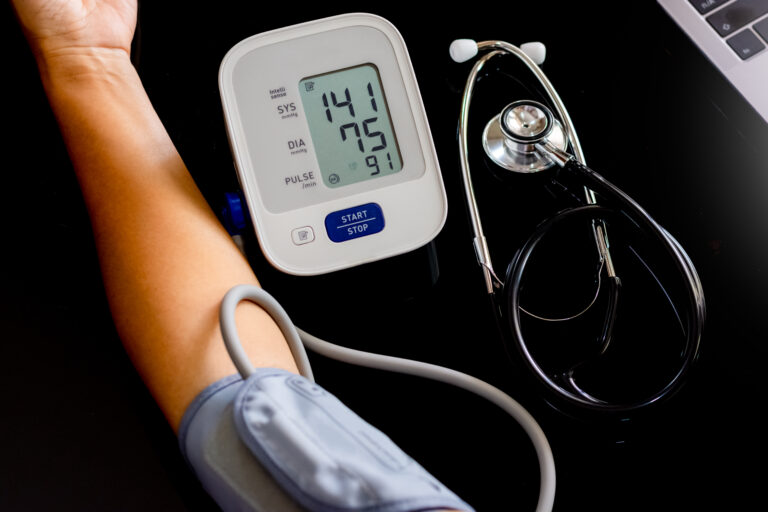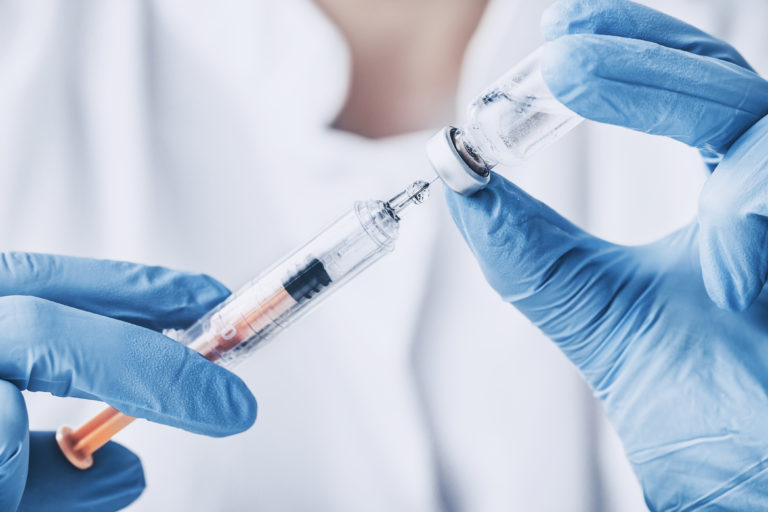
Childhood obesity worsened during the pandemic
While childhood obesity was already a problem in the United States and especially in our community, the pandemic and isolation have made the outlook even more alarming.
There are certain illnesses that could make you or your beloved ones more vulnerable to COVID-19. Learn more about it and how to protect yourself.

If you have a pre-existing condition, you may be at a higher risk of complications and serious symptoms with COVID-19. Some conditions make you more vulnerable than others. It’s important to know whether you’re at high risk, so you can take extra steps to protect yourself.
COVID-19 is still a new disease, and we have a lot to learn. But as of right now, experts say the people with the following conditions are at higher risk of complications and serious illness:
Aged 65 and Older
Adults aged 65 and older are at a higher risk of serious complications and death. Eight out of every 10 COVID-19 deaths (1) in the U.S. have been in adults over 65.
There are many reasons why older adults are at higher risk:
Immunocompromised (Weak Immune System)
People who are immunocompromised have weaker immune systems, so their bodies can’t fight off infection as well as others. A weak immune system increases your risk of getting infected and the risk of complications.
People who are immunocompromised may:
Lung Disease
COVID-19 is a virus that affects the respiratory system, and that includes the lungs. The virus attaches to cells in the nose and windpipe, but it can also go deeper into your lungs. If it enters your lungs, it can cause severe or life-threatening complications.
If you have lung diseases, you may be at a greater risk of these complications, especially if you have:
Some of these conditions may be at higher risk than others, but doctors still aren’t sure how at-risk people with lung disease truly are.
If you smoke or have uncontrolled lung disease, you may have a weakened immune system, increasing the risk of complications.
Obesity
Obesity has been linked to weakened immune function because of chronic inflammation. This inflammation makes it harder for the immune system to activate and fight off infection.
Obesity also increases the risk of other serious medical conditions, including:
All of these conditions increase the risk of complications and severe symptoms with COVID-19.
Liver Disease
COVID-19 can complicate or worsen pre-existing liver disease, but studies show the problem mostly affects severely ill people.
There is some evidence that people with COVID-19 experience liver damage. Doctors don’t know whether it’s the virus that causes the damage or the drugs used to treat the symptoms. Fortunately, the damage is only temporary (2).
Kidney Disease
People with chronic kidney disease appear to be at a higher risk of severe illness with COVID-19. People on dialysis appear to be at the greatest risk.
In many cases, people with chronic kidney disease have weakened immune systems. The heart, lungs, and kidneys work together, so any illness that affects the lungs will probably affect the kidneys, too.
Diabetes
In the Hispanic/Latino community, diabetes is a common and growing problem. In fact, Hispanic/Latino Americans have a 50% chance of developing diabetes (3).
If you have diabetes, you are more likely to get COVID-19 and experience more severe symptoms. This is because diabetes causes an abnormal increase in blood sugar if it’s not controlled.
When blood sugar isn’t properly controlled, it can lead to a condition (called ketoacidosis) that makes it harder for your body to produce immune cells. This makes you more vulnerable to infection.
Ketoacidosis is rare (fortunately), but people with diabetes may still have weakened immune systems.
Heart Disease
Respiratory illnesses like COVID-19 reduce the amount of air that enters your lungs. This makes your heart work harder to move oxygen-rich blood through your body.
The increased stress on the heart also increases the risk of heart attack, high blood pressure, and stroke.
High Blood Pressure
Many Hispanic/Latino Americans struggle with high blood pressure, and this condition can also make you more susceptible to the virus and serious symptoms. In Italy, 76% of people who died from the virus had high blood pressure.
Why are people with high blood pressure at greater risk? Experts believe it may be because of a weaker immune system caused by the condition and aging. Many people over 60 have high blood pressure. A weaker immune system can make you more susceptible to infection.
Like with heart disease, high blood pressure makes your heart work harder to pump blood. The virus can also damage the heart directly, which also complicates the illness.
A pre-existing condition may increase your risk of complications and severe symptoms with COVID-19. Talk to your doctor about what you should do to protect yourself and reduce your risk of exposure.
You can also find more trusted local services in your community at www.boyleheighstresources.org or download the Boyle Heights Resources app.
Resources

While childhood obesity was already a problem in the United States and especially in our community, the pandemic and isolation have made the outlook even more alarming.

All you need to know about this disease: causes, symptoms, diagnosis, and treatment.

Different diseases affect the heart. Learn about some of them, their symptoms, and how to prevent them.

It is important that you get medical advice from the right sources. These tips can help you.